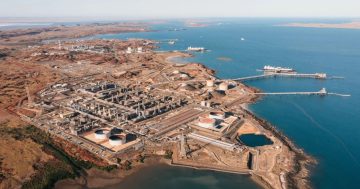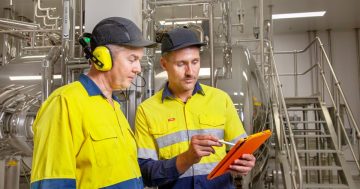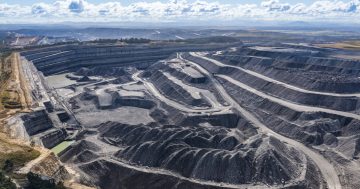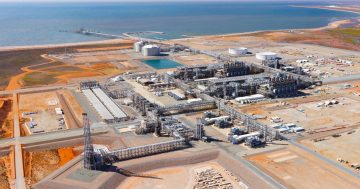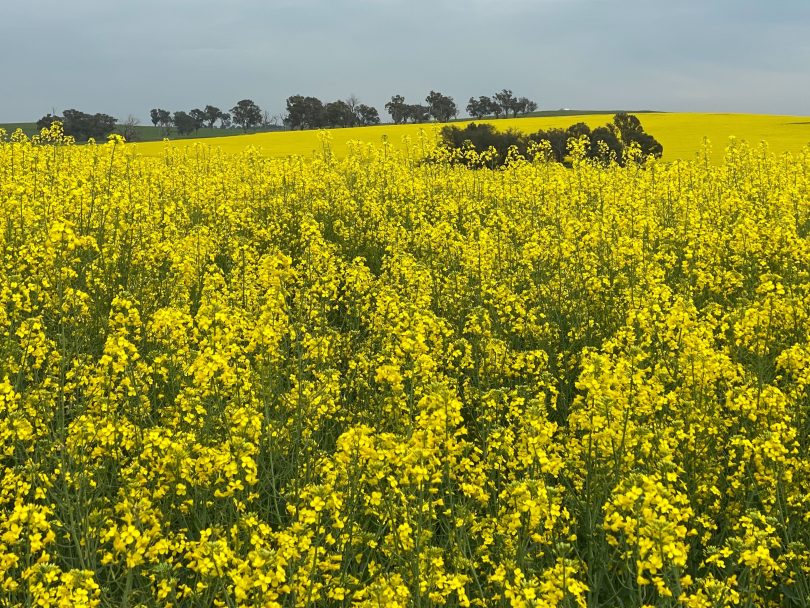
Canola is one Australian agricultural product that can be used to make cleaner liquid alternatives to fossil fuels. Photo: Region.
A massive $1.1 billion is being invested in projects across the nation aimed at unlocking economic and environmental opportunities from low-carbon liquid fuels.
A grants process is being established to identify and support innovative projects that leverage the benefits of cleaner alternative energy sources and stimulate their production.
Liquid fuels make up about half of Australia’s national energy use, and the Federal Government says replacing those fossil fuels with cleaner alternatives would deliver considerable climate and economic boosts.
The ingredients needed already exist in the agricultural sector to make cleaner liquid alternatives to fossil fuels, with ready access to feedstocks such as canola, sorghum, sugar and waste.
Agriculture Minister Julie Collins said thanks to Australia’s advanced farming practices and access to cheap and reliable renewable energy, the nation is in an enviable position to produce cleaner, low-carbon liquid fuels that jets, ships, construction machines and heavy trucks need to reach net zero.
“We’re committed to unlocking more opportunities to harness our feedstocks, which is why this investment is great news for our farmers and our regional communities,” the minister said.
“Producing more low-carbon liquid fuels right here in Australia won’t just benefit our fuel security and emissions reduction, it will support Australian farmers, foresters and our regions.
“Our farmers and foresters have always been innovators, and our government is putting their expertise and world-class production practices at the centre of growing Australia’s low-carbon liquid fuel industry.”
A new 10-year Cleaner Fuels Program will stimulate private investment in Australian onshore production of low-carbon liquid fuels, such as renewable diesel and sustainable aviation fuel.
The first production of “drop-in” cleaner fuels, which can be directly substituted for existing fuels and work in today’s engines, is estimated by 2029.
The investment will complement the National Bioenergy Feedstock Strategy, which is being developed to help the agricultural sector seize the economic opportunities that come with feedstocks.
Australia already exports nearly $4 billion of suitable feedstocks, but the Clean Energy Finance Corporation (CEFC) estimates an Australian low-carbon liquid fuel industry could be worth $36 billion by 2050.
A recent CEFC report found that a mature Australian low-carbon liquid fuels industry could deliver about 230 million tonnes CO2-e (carbon dioxide equivalent) in cumulative emissions reduction by 2050.
That is equivalent to 2.3 times Australia’s current annual transport emissions, or the annual emissions from 86 million cars.
Treasurer Jim Chalmers said these figures highlight the untapped potential of developing local refining and value-adding capability.
“Low-carbon liquid fuels are an enormous economic opportunity for Australia. It’s about making Australians and our economy big beneficiaries of the global net zero transformation,” he said.
“Developing this industry has the potential to make us an indispensable part of growing global net-zero supply chains.
“This is a down payment on developing an entirely new industry in Australia.
“From the farm to the refinery, from primary production to processing, this will create more jobs and more opportunities for Australian workers and businesses.”
Details about eligibility for grants will be considered through public consultation and design work to take place this financial year. Grants will be awarded through a competitive process.
The Low Carbon Fuels Alliance of Australia and New Zealand (LCFAANZ) has welcomed the announcement, saying it represents a clear signal to the world that Australia is open for business in the development and deployment of low-carbon liquid fuels.
The alliance represents more than 300 stakeholders – from feedstock and fuel producers to project developers, customers, researchers and all levels of government.
It has been working closely with the Federal Government to drive policy aimed at attracting the investment required to build a vibrant low-carbon liquid fuel industry.
LCFAANZ founder and CEO of Bioenergy Australia, Shahana McKenzie, said the announcement represented a major breakthrough in the building of Australia’s low-carbon liquid fuels industry.
“This investment changes the game for Australia’s homegrown low-carbon fuel industry and our energy security,” she said.
“It sets the foundation for a cleaner, more resilient economy – supporting jobs, sparking innovation and providing hard-to-abate sectors with the affordable, sustainable fuels they need to reach net zero.”
The initiative is being supported by the expansion of the Guarantee of Origin Scheme to include low-carbon liquid fuels.
A fuel quality standard for renewable diesel has also been established.
Original Article published by Chris Johnson on Region Canberra.




